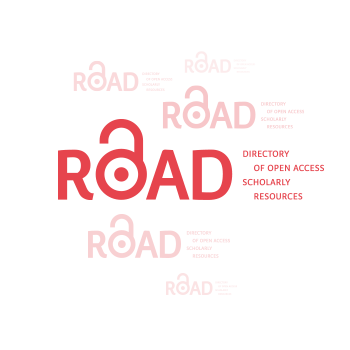تقييم إيجابيات التعلم المدعوم بالذكاء الاصطناعي في التعليم وسلبياته (ورقة موقف)
DOI:
https://doi.org/10.59994/pau.2025.SI.231الكلمات المفتاحية:
التعلم الشخصي، التحديات الأخلاقية، تعزيز العمليات التعليمية، تحليل البياناتالملخص
تهدف هذه الدراسة إلى تحليل تطبيقات الذكاء الاصطناعي في التعليم، منطلقة من التحديات المرتبطة بتحسين عمليات التدريس والتعلم، جنبًا إلى جنب مع الإمكانات التحويلية الكبيرة التي يقدمها هذا المجال. اعتمدت الدراسة على منهجية مراجعة الأدبيات، حيث جُمعت البيانات من مجلات أكاديمية محكّمة، وكتب، وتقارير بحثية، ثم صُنفت بشكل منهجي وفق محاور رئيسية، شملت: دور الذكاء الاصطناعي في تحسين تجارب التعلم، الإدارة التعليمية، والجوانب الأخلاقية. وقد أظهرت النتائج أن هناك نمطين بارزين من الذكاء الاصطناعي: "الذكاء الاصطناعي الكلاسيكي" الذي يركز على معالجة البيانات واتخاذ القرارات، و"الذكاء الاصطناعي المُولِّد" الذي يبدع محتوى أصيلاً، وهو تمييز جوهري لفهم كيفية توظيف هذه التقنيات في السياقات التعليمية. خلصت الدراسة إلى أن الذكاء الاصطناعي يوفر فوائد ملموسة، مثل: تعزيز كفاءة أنظمة التعليم، تحسين إدارة البيانات، وتقديم تعلم مخصص، إلا أنه يطرح في الوقت ذاته تحديات بارزة تتعلق بالخصوصية، والأمن، والعدالة، فضلاً عن مخاطر فقدان الوظائف. ومن ثم تؤكد الدراسة ضرورة اتباع نهج متوازن يجمع بين التقدم التكنولوجي والاعتبارات الأخلاقية والعملية لضمان توظيف فعّال ومستدام للذكاء الاصطناعي في التعليم. تكمن أصالة هذه الدراسة في تقديمها تحليلاً شاملاً وممنهجاً يوازن بين الإمكانات التقنية للذكاء الاصطناعي وتحدياته الأخلاقية والاجتماعية في قطاع التعليم. فهي لا تكتفي باستعراض المنافع والعيوب، بل تطرح رؤية نقدية متوازنة تستند إلى الأدبيات الحديثة، مما يفتح آفاقاً جديدة للنقاش العلمي حول كيفية دمج الذكاء الاصطناعي بفاعلية في التعليم مع الحفاظ على قيم العدالة والإنصاف وجودة العملية التعليمية.
التنزيلات
المراجع
Aydogdu, S., & Güyer, T. (2019). The Effect of Digital Concept Maps in Online Learning Environments on Students' Success and Disorientation. Malaysian Online Journal of Educational Technology, 7(1), 76-93.
Berland, M., Baker, R. S., & Blikstein, P. (2014). Educational data mining and learning analytics: Applications to constructionist research. Technology, Knowledge and Learning, 19(1), 205-220.
Brown, T., Mann, B., Ryder, N., Subbiah, M., Kaplan, J. D., Dhariwal, P., ... & Amodei, D. (2020). Language models are few-shot learners. Advances in neural information processing systems, 33, 1877-1901.
Chen, L., Chen, P., & Lin, Z. (2020). Artificial intelligence in education: A review. IEEE access, 8, 75264-75278.
Chiu, T. K., Ismailov, M., Zhou, X., Xia, Q., Au, C. K., & Chai, C. S. (2023). Using self-determination theory to explain how community-based learning fosters student interest and identity in integrated STEM education. International Journal of Science and Mathematics Education, 21(Suppl 1), 109-130.
Chiu, T. K., Moorhouse, B. L., Chai, C. S., & Ismailov, M. (2024). Teacher support and student motivation to learn with Artificial Intelligence (AI) based chatbot. Interactive Learning Environments, 32(7), 3240-3256.
Davis, E., & Marcus, G. (2015). Commonsense reasoning and commonsense knowledge in artificial intelligence. Communications of the ACM, 58(9), 92-103.
Falloon, G. (2020). From digital literacy to digital competence: the teacher digital competency (TDC) framework. Educational technology research and development, 68(5), 2449-2472.
Gardner, H. (2021). Disciplined mind: What all students should understand. Simon & Schuster.
Goodfellow, I. J., Pouget-Abadie, J., Mirza, M., Xu, B., Warde-Farley, D., Ozair, S., ... & Bengio, Y. (2014). Generative adversarial nets. Advances in neural information processing systems, 27.
Hu, L. (2022, July 17). Generative AI and Future: GAN, GPT-3, DALL·E 2, and what’s next. Towards AI. https://pub.towardsai.net
Hutson, J. (2025). Cultivating Identity, Workforce Readiness, and Heutagogical Lifelong Learning: The Case for Student-Trained AI Agents in Postsecondary Education. FAR Journal of Education and Sociology, 2(3).
Jarrah, A. M., Wardat, Y., & Fidalgo, P. (2023). Using ChatGPT in academic writing is (not) a form of plagiarism: What does the literature say. Online Journal of Communication and Media Technologies, 13(4), e202346.
Kim, S. W., & Lee, Y. (2018). Pre-Service Teachers' Attitudes toward Robots: Analysis of Difference According to Variables. The Journal of Korean Association of Computer Education, 21(4), 21-27.
Kwet, M., & Prinsloo, P. (2020). The ‘smart’classroom: a new frontier in the age of the smart university. Teaching in Higher Education, 25(4), 510-526.
Lee, E. (2020). A comparative analysis of contents related to artificial intelligence in national and international K-12 curriculum. The Journal of Korean association of computer education, 23(1), 37-44.
Lim, W. M., Gunasekara, A., Pallant, J. L., Pallant, J. I., & Pechenkina, E. (2023). Generative AI and the future of education: Ragnarök or reformation? A paradoxical perspective from management educators. The international journal of management education, 21(2), 100790.
Lin, H., & Chen, Q. (2024). Artificial intelligence (AI)-integrated educational applications and college students’ creativity and academic emotions: students and teachers’ perceptions and attitudes. BMC psychology, 12(1), 487.
Luckin, R., & Holmes, W. (2016). Intelligence unleashed: An argument for AI in education.
Means, B., Bakia, M., & Murphy, R. (2014). Learning online: What research tells us about whether, when and how. Routledge.
Merino-Campos, C. (2025). The impact of artificial intelligence on personalized learning in higher education: A systematic review. Trends in Higher Education, 4(2), 17.
Na, S., Heo, S., Han, S., Shin, Y., & Roh, Y. (2022). Acceptance model of artificial intelligence (AI)-based technologies in construction firms: Applying the Technology Acceptance Model (TAM) in combination with the Technology–Organisation–Environment (TOE) framework. Buildings, 12(2), 90.
Parviz, M. (2024). " The Double-Edged Sword:" AI Integration in English Language Education from the Perspectives of Iranian EFL Instructors. Complutense Journal of English Studies, 32.
Pavlik, J. V. (2023). Collaborating with ChatGPT: Considering the implications of generative artificial intelligence for journalism and media education. Journalism & mass communication educator, 78(1), 84-93.
Reddy, V. M., Vaishnavi, T., & Kumar, K. P. (2023, July). Speech-to-text and text-to-speech recognition using deep learning. In 2023 2nd international conference on edge computing and applications (ICECAA) (pp. 657-666). IEEE.
Roll, I., & Wylie, R. (2016). Evolution and revolution in artificial intelligence in education. International journal of artificial intelligence in education, 26(2), 582-599.
Russell, S. J., & Norvig, P. (2016). Artificial Intelligence: A Modern Approach. Pearson. Available at: https://aima.cs.berkeley.edu/
Salem, M. O. A. (2025). The Future of eLearning: An Analytical Study of Emerging Innovations Transforming Teaching and Learning. Journal of Scientific and Human Dimensions, 39-49.
Selwyn, N. (2019). Should robots replace teachers?: AI and the future of education. John Wiley & Sons.
Shweiki, S., Abd-Rabo, A., Badah, A., Tarteer, S., Mahmoud, S., Odeh, A., & Affouneh, S. (2021). A code of ethics proposal for Palestinians’ educators: attitudes and themes. International Journal of Ethics Education, 6(2), 339-355.
Silva, J., & Silveira, I. (2020). A systematic review on open educational games for programming learning and teaching. International Journal of Emerging Technologies in Learning (iJET), 15(9), 156-172.
Snyder, H. (2019). Literature review as a research methodology: An overview and guidelines. Journal of business research, 104, 333-339.
Steiner, E. D. (2015). Continued progress: Promising evidence on personalized learning. Rand Corporation.
Stone, P., Brooks, R., Brynjolfsson, E., Calo, R., Etzioni, O., Hager, G., ... & Teller, A. (2022). Artificial intelligence and life in 2030: the one hundred year study on artificial intelligence. arXiv preprint arXiv:2211.06318.
Tranfield, D., Denyer, D., & Smart, P. (2003). Towards a methodology for developing evidence‐informed management knowledge by means of systematic review. British journal of management, 14(3), 207-222.
Turing, A. M. (1950). Computing machinery and intelligence mind, 59, 236, 433–460. Cerca con Google.
Williamson, B. (2017). Big data in education: The digital future of learning, policy and practice.
Zohuri, B., & Mossavar-Rahmani, F. (2024). Revolutionizing education: The dynamic synergy of personalized learning and artificial intelligence. International Journal of Advanced Engineering and Management Research, 9 (1), 143-153.
التنزيلات
منشور
كيفية الاقتباس
إصدار
القسم
الرخصة
الحقوق الفكرية (c) 2025 مجلة جامعة فلسطين الأهلية للبحوث والدراسات

هذا العمل مرخص بموجب Creative Commons Attribution 4.0 International License.
مجلة جامعة فلسطين الاهلية للبحوث والدراسات تعتمد رخصة نَسب المُصنَّف 4.0 دولي (CC BY 4.0)











